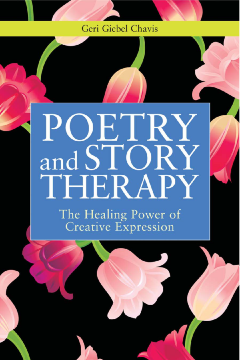
Additional Information
Book Details
Abstract
Poetry and short stories can act as powerful springboards to growth, self-enhancement and healing. With the guidance of a skilled facilitator, participants can engage with their own creative expression, and with that of others, and in doing so find opportunities to voice their truth, affirm their strengths, and find new ways of coping with challenges.
This book explores the therapeutic possibilities of poetry and stories in turn, describing how to select appropriate works for discussion, and providing techniques for facilitating personally-relevent and growth-enhancing sessions. The author provides ideas and suggestions for personal writing activities that emerge from or intertwine with this discussion, and explains how participants can create their own poetic and narrative pieces using non-literary stimuli, such as music, photographs, paintings, objects, and physical movement. A useful appendix contains titles of individual poems, stories, and literary anthologies that the author has found particularly beneficial in her work, as well as useful further resources and contact details for readers who would like to train to be registered or certified poetry therapists or facilitators.
Combining theory with innovative ideas for practical, experiential exercises, this book is a valuable tool for creative arts therapy students and practitioners, mental health and medical professionals, and anyone else interested in the healing possibilities of creative expression.
Geri Chavis is a professor of English at St. Catherine University, Minnesota, a Licensed Psycholgist in private practice, and a Certified Poetry Therapist. She is a former Vice President of the National Association for Poetry Therapy (NAPT) and is an Editorial Board member of the Journal for Poetry Therapy. Most recently, she was named honorary President of the newly-formed Irish Poetry Therapy Network.
Envisaged as a "primer of poetry therapy"(primarily for readers outside of the United States), this wonderful book thoroughly explores the therapeutic possibilities of poetry and story, as well as considering some wider aspects of creative writing practice. It will be of interest to both students and practitioners of creative arts therapies within the medical and health professions, as well to those working in other settings that use the healing possibilities of creative expression.
Lapidus Journal
This is an excellent resource for anyone who is interested in using stories in a therapeutic context. The author's focus is on using a written text or reading aloud from a text rather than oral storytelling however there is still much that is useful for the storyteller.
In reading I was reawakened to the potential that stories have to facilitate healing and change lives. Chavis uses stories and poems to work with clients and in the book she outlines how she chooses the texts and works with them. There is a short section on folk and fairy tales and I was interested to read that the author likes to work with client's most memorable story. The reason it is memorable is because it resonates strongly with the client's psyche and can help to reveal aspects that have been suppressed or hidden.
Storylines
Geri Chavis, long-time leader in the expressive art of poetry therapy, shares her collected wisdom and experience in Poetry and Story Therapy: The Healing Power of Creative Expression. This volume is a significant contribution to the growing literature about the expressive literary arts. A key feature of the book is the author's ability to discuss theory and research, historical antecedents for current poetry therapy, aid readers in exploration of the pros and cons of approaches and selections, and to describe examples and models for use by clinicians and other practitioners... Practitioners who use writing, literary sources, and metaphors in their therapeutic work have a new and wonderful volume to support and expand their efforts. Educators of and coaches for those wanting to learn about the expressive literary arts have a rich, stimulating resource for their efforts. Lovers of literature could pass over all the pages about poetry and story therapy and still get a book of value for the exceptional variety of quotes and references.
Journal of Poetry Therapy
